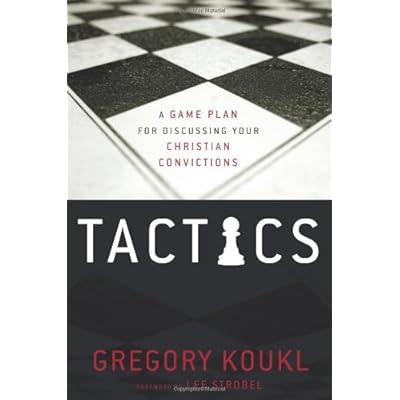
Purchase the book or read more about it here on www.str.org
Here is a brief summary of each of the main tools and chapters presented. It is worth reading the entire book because of the conversations detailed and the specific examples of each strategy.
PART TWO: FINDING THE FLAWS (continued)
Steamroller - Sometimes people will try to overpower you with words and ideas without listening to valid counter-arguments. Learn to identify this behaviour, stop it by saying, "stop right there. You haven't answered my question". If they persist, shame them by pointing out exactly what they have avoided answering. If they refuse to play ball after that there is no point in talking with them - just leave the conversation. Don't cast pearls before swine.
Rhodes Scholar - Just because someone is an academic expert it doesn't mean that they are basing their arguments on logical lines of reasoning. Be aware of when someone is trying to educate you or inform you. Informers don't try to justify their position. Educators make a case and leave the conclusion as a result of the evidence.
Sometimes two definitions of science are used to confuse. "Science deals with the natural world only" suits when evidence points to a supernatural designer. But when it suits to rubbish faith, "science is a method using evidence and experiments." So the right methods are expected and the right answers are also expected!
Historical science also includes assumptions about the expected findings, denying miracles even though we have records of eye-witness accounts.
The Rhodes Scholar tactic is merely to ask for the reasons for what the opponent believes, and not just accepting their statement as truth.
Just the facts ma'am - Use facts and figures to make a strong case. This is especially useful when a claim is made that doesn't stand up to the facts, e.g. "Religion has caused more wars and death than anything else" but 66 million were wiped out under Lenin, Stalin, and Khrushchev (atheistic communists); between 32 and 61 million Chinese have been killed under communist regimes since 1949; etc.
Memorise with precision any dates, figures, and facts that apply (the more specific the better) and then suggest that the person with the vague counter claim must face those facts. Facts are more powerful than a louder voice.
Finding the right context for a reading can be used as facts to help interpret scripture too, e.g. using the log in your own eye verse against judging. This verse actually says you can judge if you do not have a log in your eye. IT is about not being hypocritical in your judgment so is actually telling you to judge!
More Sweat, Less Blood - Working hard in training means less blood in the battle. Spend time with others who share the passion of learning these tactics and it gets easier to learn them. Face legitimate objections to your faith - they will only lead to a clearer understanding of the truth and a stronger faith (if your faith is correct). Don't be shy, you have the truth so give it a go at least. Have courage. Even the best arguments may result in failure to convince because at the end of the day people can't believe unless God changes their heart.
Follow the Ambassador's Creed. Be ready, patient, reasonable, tactical, clear, fair, honest, humble, attractive, and dependent on God.
I am intending to write a follow up to this series about some of my experiences implementing these tactics over the 12 years of my own discussions defending the Christian Faith. Subscribe or add my blog to your reader to receive these automatically.